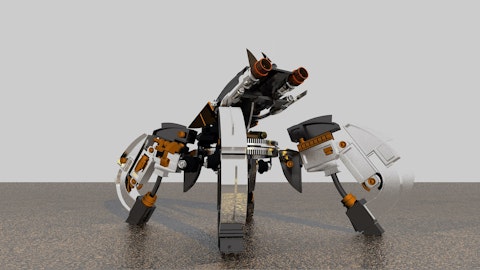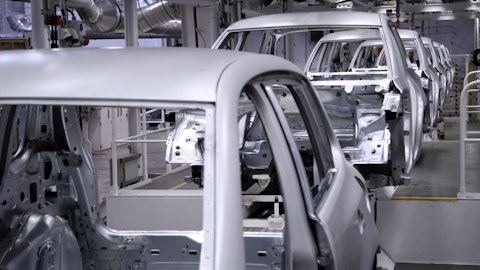Andrew Obin: Hey, just as you think about it seems that you are about to embark on a multi-year growth spurt. How should we think – how do you guys think about your cash conversion just structurally going forward? Do you just need to accept permanently lower cash conversion? We just need to invest in working capital and growth, and if not, what levers can you pull to sort of get it back to this 95% level that we’ve had?
Nick Gangestad: Yes. Andrew, thanks for that question. The – our longer-term plan and expectation is that we should be at 100% free cash flow conversion or averaging that, that over time, even in a period where we are growing more substantially than we have, I’ll say pre-pandemic. And with where we stand now with our working capital, where we’re estimating it to exit fiscal year 2023, we think that creates some tailwinds for us in cash conversion in the next couple years for us that even in a higher growth world, we can still be generating something from an operational standpoint closer to the 100% free cash flow conversion. There are a couple headwinds, I’ll just want to make sure you’re aware of Andrew. One is we are at the point now where we are making more substantial cash tax payments on the transition tax that was part of TCJA.
Some companies adjust that out of their free cash flow conversion. We don’t – we keep that in there. And we’re also being impacted by the recent requirement that we capitalize for tax purposes, our R&D expense, and that that’s having a several percentage point between 5 and 10 percentage point impact to our free cash flow conversion in the next few years. It’s something after five years or six years we work our way through, that just becomes part of the base, but it is having that between 5% and 10% impact to free cash flow conversion. And then the last I’ll note is as we’ve been liquidating our PTC shares, realizing the gain, the nuances of how free cash flow reporting is that gain is not part of our denominator in that equation, but the cash taxes is part of that – of the numerator in that equation, and it’s just a nuance in pointing out that has impacted us this year and could impact us in coming quarters as well.
But I’ll call those more noise versus your underlying question, I think on our – the ability of our business model to be generating 100% free cash flow conversion.
Andrew Obin: Great. And then just on your ARR I think 17% very healthy. Could you give us a look sort of under the hood what the components are, which portions of your business is doing better? Maybe talk about MES, talk about Fiix, Plex, whatever it is you guys want to talk about, but just give us a sense of what’s driving the software growth. Thank you.
Blake Moret: Sure. So I mentioned a few wins with Plex in the quarter. And Plex has continued to be a good performer for us both in terms of the expansion of existing customers, as well as new logos where Rockwell’s market access gave us opportunities there. So Plex was a strong performer in the quarter. Fiix as well with the asset management. These are two SaaS applications that are doing quite well for us, and contributed substantially to that 17% ARR I mentioned some wins with PTC. Those are subscription wins. And those were some major competitive victories for us in the quarter. And then on the high value services side, cybersecurity services, and I’ve talked about that that’s been right at the top of our fast growing businesses and we have a recurring revenue component of cyber. So those things were probably at the top of the list and contributing to what you’re right, was really good ARR in the quarter.
Andrew Obin: Thanks so much.
Blake Moret: Yes. Thanks, Andrew.
Operator: Our next question comes from Steve Tusa from JPMorgan. Please go ahead. Your line is open.
Steve Tusa: Hi, good morning.
Blake Moret: Hey, Steve.





